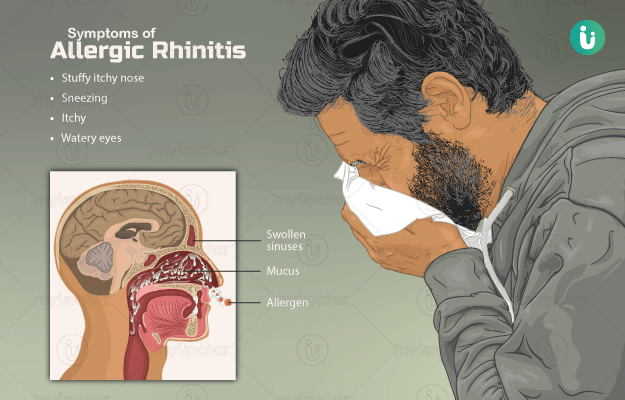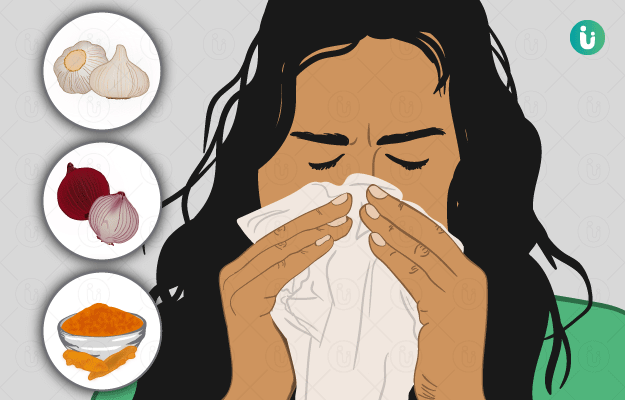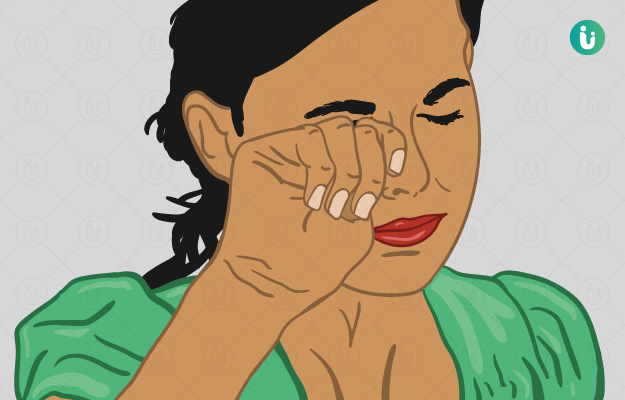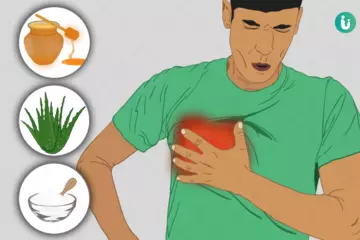What is Allergic Rhinitis?
Experiencing symptoms similar to a common cold caused due to allergens found outdoors or indoors typically constitutes allergic rhinitis, or what we commonly refer to as hay fever. The list of allergens is long, and not everyone reacts to all of them. Apart from the physical symptoms, what most people suffer from is a general feeling of discomfort and the inability to carry out routine tasks at work, home or school.
What are its main signs and symptoms?
There are a variety of symptoms you are likely to develop as a result of the allergy. Many people experience a combination of one or two symptoms with an attack. The most common symptoms include:
- Tiredness.
- Coughing.
- Persistent sneezing.
- Itching and redness in the eyes, often accompanied by watering eyes.
- Congestion in the nasal cavity and runny nose.
- Dark patches and swelling below the eyes.
- Dryness and itching in the throat and/or nose.
What are the main causes?
In some individuals, especially while experiencing the first reaction, the body protects itself by releasing antibodies to combat the substance causing the allergy. Every time the body is exposed to the allergen subsequently, the body automatically releases chemicals, which then trigger the symptoms of hay fever.
Common allergens are:
- Pollen from trees, grass and ragweed.
- Dander, saliva and skin of pets.
- Dust and mites.
- Spores from fungi and mould.
How is it diagnosed and treated?
Diagnosis of hay fever is rather simple and straightforward. There are two main methods used to detect the condition. These are:
- Blood test to identify the allergens that affect the body and also estimate the amount of allergen-fighting antibodies in the blood.
- Skin prick test to identify potential allergens. Small amounts of allergens are injected into the body. If the person has an allergic reaction to a particular substance, an elevated bump appears at the site pricked.
The best way to protect against allergens and keep hay fever at bay is to stay away from what causes a reaction. Medication may be prescribed for symptoms in some cases. In more severe cases, a course of stronger drugs may be prescribed. Some of these are:
- Nasal corticosteroids for itching, swelling and runny nose.
- Antihistamines for sneezing, runny nose and itching. These may be given as pills or sprays. They act by inhibiting the chemical histamine, which is released during the allergic reaction.
- Decongestants are available in various forms and provide relief from a stuffy nose. They do have side effects, such as high blood pressure, headaches and insomnia.
- Leukotriene modifier is a medication that blocks leukotriene, which is responsible for symptoms, such as excess mucus production and runny nose.
- Oral corticosteroids to provide relief from symptoms.
- Nasal ipratropium for a runny nose and to reduce mucus production in the glands.
Other remedial measures include allergy shots, anti-allergic tablets placed under the tongue, steam inhalation and rinsing of the sinuses.

 Doctors for Allergic Rhinitis (Hay Fever)
Doctors for Allergic Rhinitis (Hay Fever)  OTC Medicines for Allergic Rhinitis (Hay Fever)
OTC Medicines for Allergic Rhinitis (Hay Fever)
 Allergic Rhinitis (Hay Fever) articles
Allergic Rhinitis (Hay Fever) articles

 Home Remedies for Allergic Rhinitis (Hay Fever)
Home Remedies for Allergic Rhinitis (Hay Fever)







 Dr. Laxmidutta Shukla
Dr. Laxmidutta Shukla











